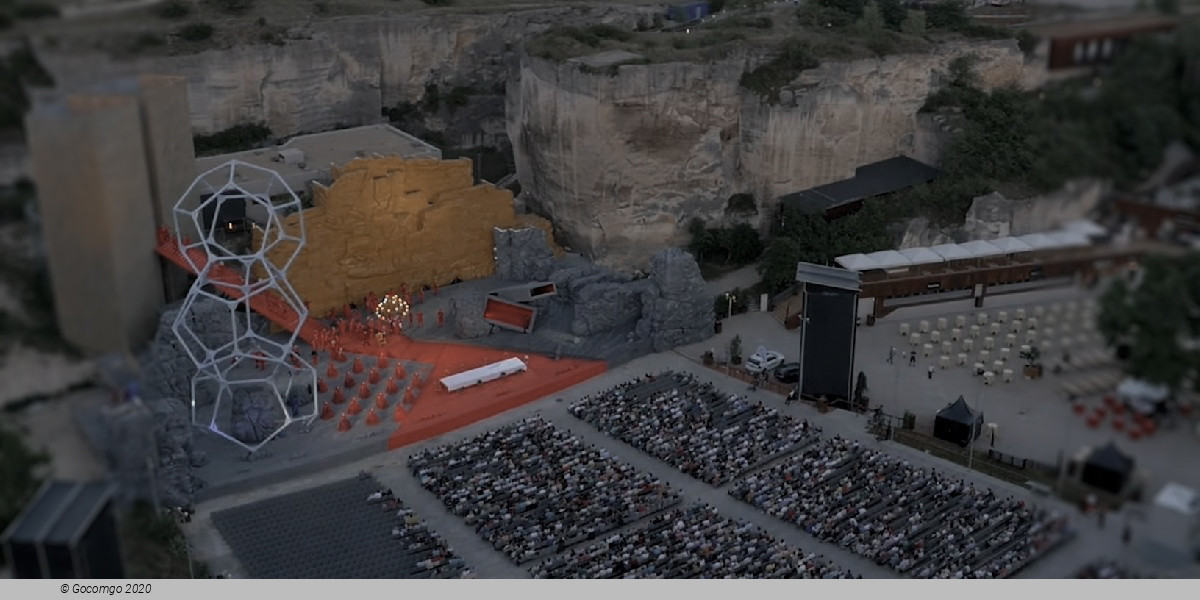St. Margarethen Quarry (Sankt Margarethen im Burgenland, Austria)
St. Margarethen Quarry

Embedded in the landscape of the Neusiedler Lake, this region is an UNESCO World Heritage Cultural Landscape. It represents “outstanding value to humanity”, with St. Margarethen providing a fascinating insight into our geological past.
20-30 million of years ago, this quarry was part of the seabed. The limestone rocks contain a wealth of marine fossils. If you are lucky, you will find prehistoric mussels, corals, sea urchins and coralline algae. The limestone from the quarry was used for building St. Stephen’s Cathedral in Vienna, and the grandest buildings along the Vienna‘s Ringstraße. The colours and shapes of the rocks appear to change, according to where the sun is shining.
Ever since 1996, the St. Margarethen Quarry has been a favourite meeting place for international opera lovers. This open-air stage in beautiful Burgenland (65 km southeast of Vienna) provides a natural forum for bringing together cultures and people from East and West.
Set in the midst of a historic landscape, this venue will transport you to a world of new, unique experiences. By providing first-rate facilities for staging popular and top quality opera productions, their festival has succeeded in attracting enthusiastic audiences as well as international opera stars and musicians.
One of Europe’s most beautiful and impressive open-air arenas, operas have been performed at St. Margarethen Quarry since 1996. With the Esterházy Foundation as its owner, this location was redeveloped in 2006. AWG, a young, international architects group from Vienna, designed exciting architecture that was also sensitively attuned to the setting, a space that had actually been an industrial site for many centuries.
The St. Margarethen Quarry is Europe’s largest natural stage. This natural open-air concert hall covers an area of 7.000 m2, which gives it a wonderful acoustic and inspires feelings of awe. The natural and man-made architecture of the quarry enhances the emotional impact of the music on the 4.700 opera-goers in the audience.
Its monumental stone walls, special climate, unique flora and fauna and its incomparable acoustic, together with its ability to enthral its visitors for hours at a time, all combine to produce an unforgettable festival. The quarry arouses feelings, inspires affection and brings people together. It’s an exclusive place; a place that the public enjoys returning to, again and again.


